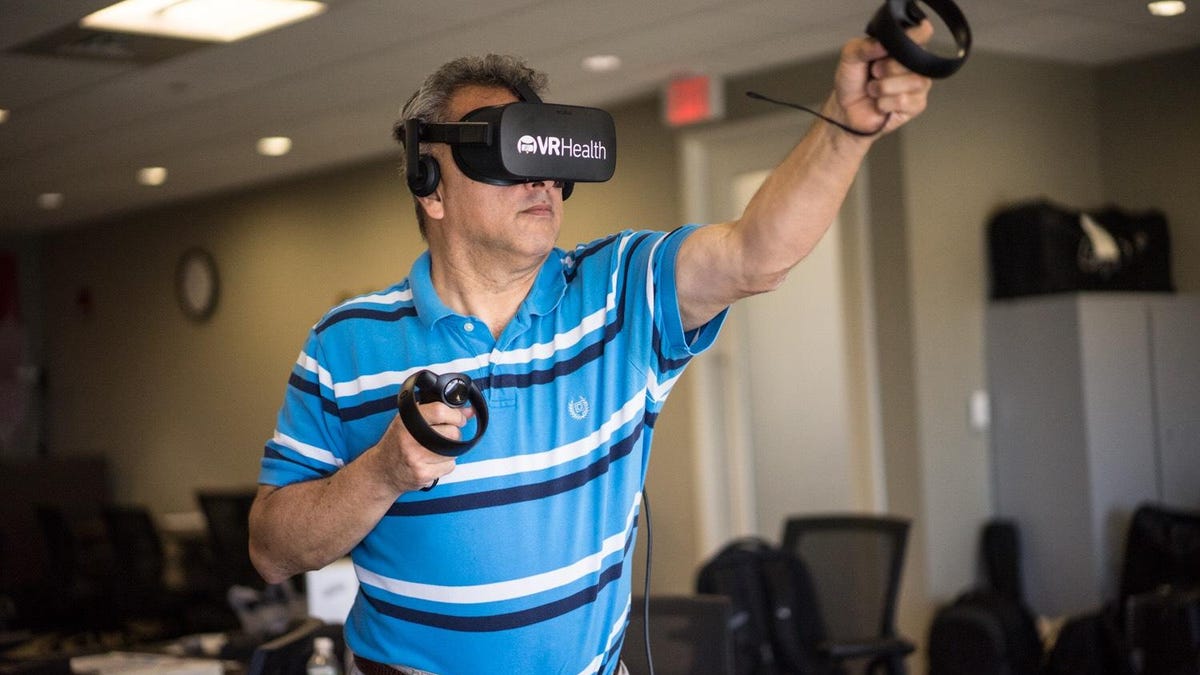VRHealth works with Oculus to bring you at-home exercises using virtual reality
The platform offers physical and cognitive exercises, and analyzes your performance so you can measure your progress.

VRHealth is working with Oculus to deliver its wellness platform for at-home use.
Virtual reality medical company VRHealth said Wednesday it's working with Oculus to deliver its new health and wellness services on the Oculus Go . Using the headset and VRHealth's apps, people can do physical and cognitive exercises at home using VR. The company announced the collaboration at Oculus Connect in San Jose.
VRHealth's wellness apps, which can be purchased on the company's site, guide users through things like neck exercises and memory exercises. VRHealth collects data about a person's performance, such as their reaction time and how smooth their motions are. Users can go to their portal on VRHealth's site to see their progress and how well they performed compared to others in their age group.
VRHealth's platform is already being used at more than 30 hospitals and medical centers across the US with the Oculus Rift . Each of the company's nearly 15 apps features game-like scenarios or relaxing footage, such as a virtual journey to famous places around the world using Google Earth. These apps can distract patients from painful procedures and treatments such as chemotherapy.
At Stanford Sports Medicine, doctors use VRHealth's app for traumatic brain injuries to evaluate athletes after concussions. Patients participate in a virtual game in which they're tasked with matching boxing gloves to a set of lights that pops up in front of them. Their response times, errors and progress are measured and analyzed in real time. Health care professionals can use that information to personalize a patient's treatment plan. Providers, payers and users can also access the data.
VR has been used for decades to help people overcome phobias and anxiety disorders. As the equipment becomes sleeker and cheaper, it's being used to train midwives and help stroke victims regain motor function. More researchers and hospitals are also finding that VR can reduce patients' anxiety and pain perception during things like dressing changes, IV placement or epidural administration. It can also help patients relax before or after a procedure.
"Once you put on a headset, you're not in the hospital anymore," said VRHealth CEO Eran Orr. "VR provides a place for patients to escape."
Through its collaboration with Oculus, VRHealth is expanding its platform for at-home use. Customers can choose from three different plans: 20 sessions for $5 a month, 50 sessions for $10 a month or unlimited sessions for $19 a month. The Oculus Go is $199 for 32GB or $249 for 64GB.
Tech Enabled: CNET chronicles tech's role in providing new kinds of accessibility.
CNET Magazine: Check out a sample of the stories in CNET's newsstand edition.

